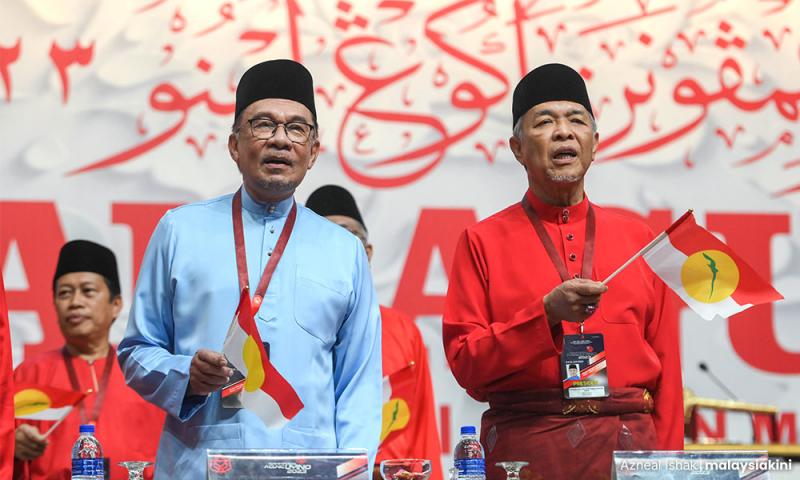
S Thayaparan
Published: Apr 11, 2024 7:10 AM
“Those who are determined to be ‘offended’ will discover a provocation somewhere. We cannot possibly adjust enough to please the fanatics, and it is degrading to make the attempt.”
COMMENT | As reported by Malaysiakini, PKR vice-president and cabinet member Nik Nazmi Nik Ahmad said, “At the end of the day, we can’t outflank Perikatan Nasional in terms of playing the Malay card or the Islamic card, because we know that that is their comparative advantage in a way”.
When I read this, all I could think about was the prime minister presiding over the conversion ceremony of a young Hindu.
When the current prime minister presided over the conversion of this Hindu youth, he was representing the religious reality that non-Muslims face in this country. He was not merely welcoming a new convert into the religion, he was reinforcing religious narratives. This is the main agenda of the far-right.
And this is the problem with the political discourse. Nik Nazmi says Pakatan Harapan should “not abandon its ideals and risk losing the coalition’s core supporters in an attempt to win over far-right opposition voters”.
Published: Apr 11, 2024 7:10 AM
“Those who are determined to be ‘offended’ will discover a provocation somewhere. We cannot possibly adjust enough to please the fanatics, and it is degrading to make the attempt.”
- Christopher Hitchens, British-American
author and journalist
COMMENT | As reported by Malaysiakini, PKR vice-president and cabinet member Nik Nazmi Nik Ahmad said, “At the end of the day, we can’t outflank Perikatan Nasional in terms of playing the Malay card or the Islamic card, because we know that that is their comparative advantage in a way”.
When I read this, all I could think about was the prime minister presiding over the conversion ceremony of a young Hindu.
When the current prime minister presided over the conversion of this Hindu youth, he was representing the religious reality that non-Muslims face in this country. He was not merely welcoming a new convert into the religion, he was reinforcing religious narratives. This is the main agenda of the far-right.
And this is the problem with the political discourse. Nik Nazmi says Pakatan Harapan should “not abandon its ideals and risk losing the coalition’s core supporters in an attempt to win over far-right opposition voters”.
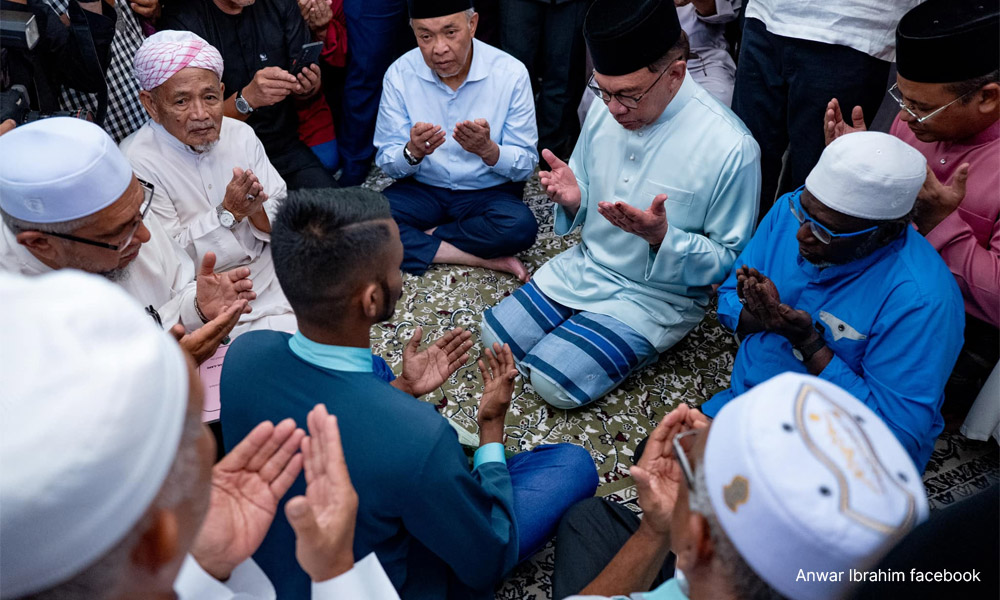
Prime Minister Anwar Ibrahim at a conversion ceremony in Klang, Selangor
This sounds good but first Harapan has to demonstrate what exactly those ideals and principles are and how they differ from what the far-right offers.
Nik Nazmi is correct when he says the racial and religious narrative is not the sole criteria for certain PN voters but rather socio-economic issues.
However, the problem is that the prime minister and his willing enablers in Harapan are doing everything to reinforce the racial and religious narratives of the far-right.
Nik Nazmi talks about the balancing of expectations as if racial and religious preoccupation is going to make the lives of the majority Malay/Muslim community better.
Indeed, the Sock-gate fiasco has demonstrated that Umno and, by extension, Harapan do not care about the economic well-being of Malays as long as Umno thinks it can get political mileage from playing up this issue.
Fence-sitters are important as Nik Nazmi correctly points out but, here’s the thing, fence-sitters want to know if there is a difference between Harapan and PN especially when it comes to religious discourse.
This sounds good but first Harapan has to demonstrate what exactly those ideals and principles are and how they differ from what the far-right offers.
Nik Nazmi is correct when he says the racial and religious narrative is not the sole criteria for certain PN voters but rather socio-economic issues.
However, the problem is that the prime minister and his willing enablers in Harapan are doing everything to reinforce the racial and religious narratives of the far-right.
Nik Nazmi talks about the balancing of expectations as if racial and religious preoccupation is going to make the lives of the majority Malay/Muslim community better.
Indeed, the Sock-gate fiasco has demonstrated that Umno and, by extension, Harapan do not care about the economic well-being of Malays as long as Umno thinks it can get political mileage from playing up this issue.
Fence-sitters are important as Nik Nazmi correctly points out but, here’s the thing, fence-sitters want to know if there is a difference between Harapan and PN especially when it comes to religious discourse.
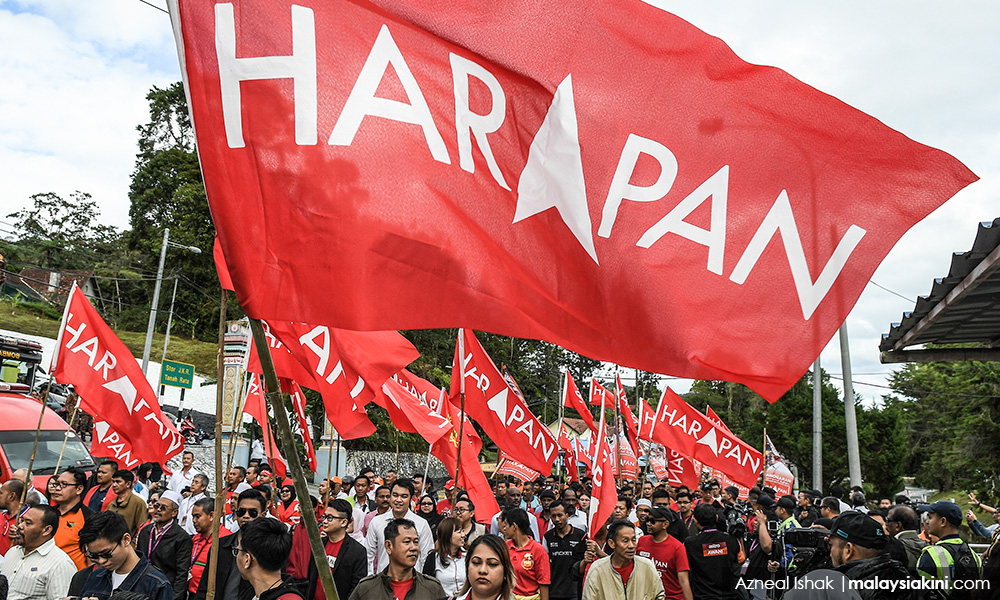
And this does not mean what Harapan supporters think it means. Do you know why Sock-gate was so damaging to Harapan? It is not because the non-Malay base was clutching its pearls the way how unity government provocateurs were clutching their pearls.
Winning over fence-sitters
Sock-gate demonstrated the difference in religious moderation between Harapan and PN.
PN was remarkably quiet about Sock-gate and was willing to give enough rope for Umno/Harapan to hang itself with. They remained quiet and disciplined, and even offered a few moderate words to the subject.
While non-Malay voters are sceptical of PAS/PN, the average fence-sitter would see how “moderate” PAS is and would even think this is how a moderate Malay/Muslim political coalition should behave.
Indeed, for these moderate fence-sitters, Umno/Harapan looked so detrimental to unity and harmony that even the Agong had to step in. So, for the fence-sitters, why not go with PN which does not create issues like this?
Harapan supporters think PN supporters are dumb for some reason. However, when DAP operative Hannah Yeoh claims the opposition plays up religious issues - when Umno did so, enabled by DAP, which stirred up religious issues and resulted in domestic terrorist acts - what do you think these fence-sitters will think?
This is the problem with the “don’t spook the Malays” mantra. PKR is always trying to champion bumiputera rights as if those rights are in jeopardy. Two years ago, Terengganu PKR wanted the party’s central command to address the “imbalance“ of awarding digital bank licences.
Terengganu PKR chief Azan Ismail, hoping the issue will gain traction, said: “We urge the finance minister and prime minister to state their stand on this matter and what will guarantee bumiputera equity ownership.”
This basically means PKR is attempting to accuse the government of not being Malay uber alles (over all) enough.
Playing the class card
The Malay vote is all-important, which is why PKR, as a supposedly multi-racial party, is struggling. Former prime minister (twice) Dr Mahathir Mohamad has demonised PKR as being unacceptable to the Malay community because of its multi-racial component.
While PKR may never play the race card well, they can and should play the class card. There is a reason why PN/PAS are deathly afraid of the class card.
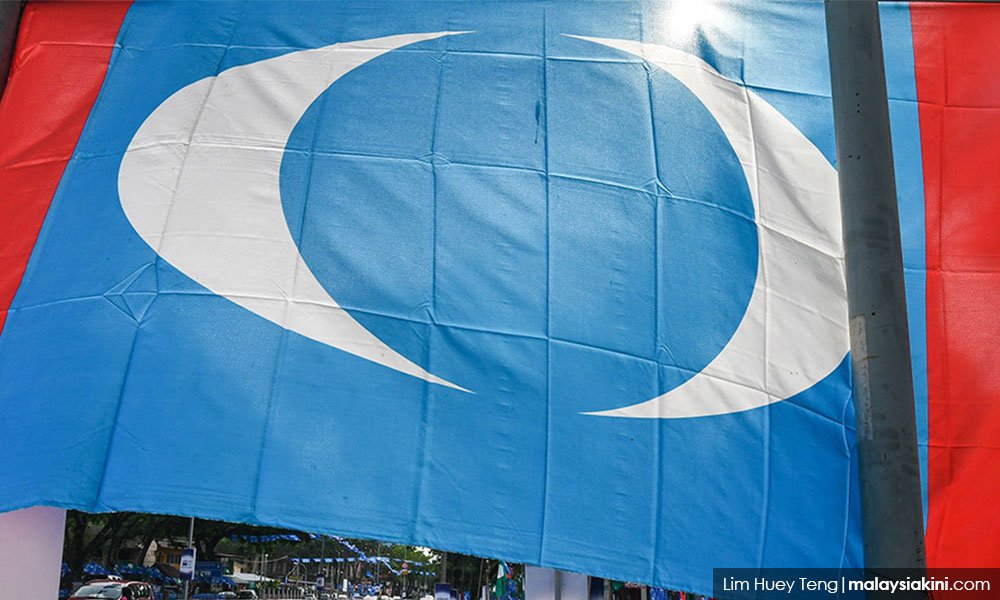
Anwar is at his best when he is rabble-rousing with the class card and pursues populist narratives like this: “I want to tell the leaders with the titles of ‘Tun’ and ‘Tan Sri’ who are rich - if you really want to save Malays, give them half of your billions in profits tomorrow”.
It is talk like this which frightens the more intelligent members of the religious extremist coalition going up against this coalition government. For instance, former Bersatu information chief Wan Saiful Wan Jan wanted to know if Anwar was attempting to instigate class warfare.
Wan Saiful, as part of the Malay political elite, really does not want any raising of class consciousness among the disenfranchised Malay classes but has no problem providing them with crumbs from the table through racial and religious entitlement programmes to keep them dependent and with a sense of racial and religious superiority.
Yes, going after the big fish when it comes to corruption is good optics, especially for middle-class or urban voters.
However, tackling corruption in entitlement programmes at the state and federal levels is more important to the voters that Harapan wants to gain traction.
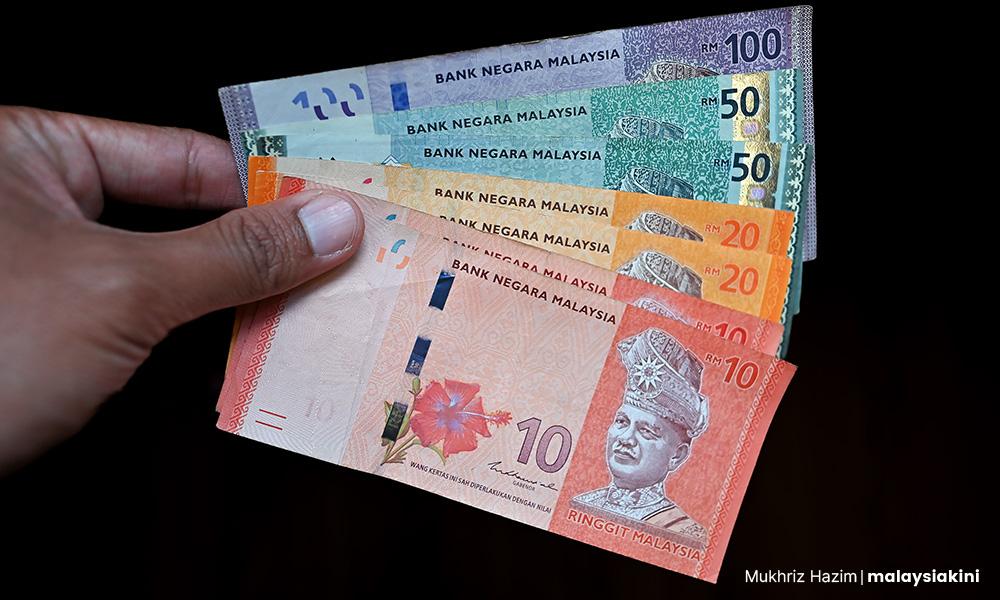
This is because going after bureaucratic malfeasance like this actually improves their lives because the delivery system is made more efficient.
However, the government is afraid to seriously address corruption within the ranks of the civil service because they are afraid they may lose this vote bank - which they are already losing.
This again is part of the class conflict which would suit Harapan better than toxic religiosity that Harapan thinks will gain favour with fence-sitters.
In the end, I believe it would be better if Harapan fails as a reformist government than succeeds as a theocratic state.
Your mileage may vary.
S THAYAPARAN is Commander (Rtd) of the Royal Malaysian Navy. Fīat jūstitia ruat cælum - “Let justice be done though the heavens fall.”

No comments:
Post a Comment